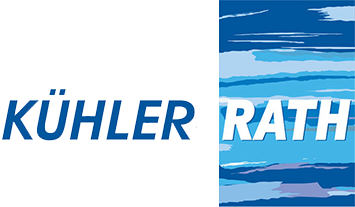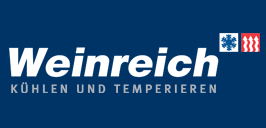Главный офис
в центре Европы
Гарантия
до 24 мес
до 24 мес
Лучшие
цены
цены
Экономия
от 15 до 55%
от 15 до 55%
Доставка
по России
по России
Все грузы
застрахованы
застрахованы
Бесплатная
доставка
доставка

Alfa Laval CentriBone
Категория - Оборудование для получения протеинов
Официальный сайт Alfa Laval (Швеция) :
www.alfalaval.com
Узнать цену
В нашей компании вы можете выбрать и купить Alfa Laval CentriBone, а также другие запчасти от
компании Alfa Laval с доставкой по всей России, в том числе в ваш город : Дублин. Для запроса цен, сроков поставки
и других характеристик продукции Alfa Laval, пожалуйста, заполните форму обратной связи или пришлите описание необходимых Вам наименований
на электронный адрес info@famaga.ru
Описание
Продукция, изготовленная шведской Alfa Laval компанией, подходит для использования в пищевой, химической, фармацевтической, горнообрабатывающей и нефтяной промышленности.Преимуществом товара является длительный срок службы без необходимости осуществления регулярного обслуживания, а также его первоклассное качество и надежность. Alfa Laval Centribone plants provide the most versatile and efficient way to process meat by-products. The continuous wet rendering process can handle any raw material, from purely fatty tissues to the best gelatin bones. The low-temperature process is a totally closed system, especially suitable for processing edible products. With Centribone’s state-of-the-art processing, you can now move into more profitable segments in the market of end products. High quality end products To obtain the highest quality end products, the temperatures of fats, proteins and collagens must be kept as low as possible while processing. Centribone enables the production of high-quality fats, with outstanding colour, and no increase in free fatty acids (FFA) or peroxide value(s) and with very low moisture content. In the processing of pet foods or edible proteins, Centribone retains the highest possible nutritional values. The amino acid spectrum is virtually unaffected. This is due to the optimized heating programme – with the colour of the proteins and fats confirming its value. Centribone’s continuous processing makes it easy to maintain uniform quality. Producers benefit in terms of ease of operation – and customers appreciate the difference. Flexible production planning In reducing start-up and shutdown times, Centribone not only makes production more flexible and more efficient, but also allows more time in any production schedule. In a Centribone plant, for example, processing different raw materials such as fatty tissues and bone is possible in successive cycles, if required. Whether you are a large-scale operator or a small one, your productivity is improved. Short-time melting process The minced material fed to the inlet of the raw material heater is led through the heater by a variable-speed conveyor. The holding time in the heater can be as short as five minutes, where the temperature is carefully controlled at 65–90°C (150–195°F), depending on the raw materials used and the end product desired. Rapid heating is achieved by injecting live steam directly into the raw material. Fully automatic control of the temperature profile can be obtained through built-in temperature sensors, available as optional instrumentation. Low energy consumption With Centribone, energy consumption is reduced by as much as 30%, compared with dry rendering methods. This is because the decanter and separator remove most of the process water mechanically. And, unlike conventional processes, Centribone becomes more economical to use as the water content of the raw material increases. Flexible throughputs and layouts Centribone plants can process a variety of raw materials at rated throughputs ranging from 3 to10 t/h. At higher throughputs, flexible twin-lines are normally recommended. Because of its logical, compact design, a Centribone plant requires minimum space. It can be easily fitted into existing buildings. In addition, it is easy to operate and maintain. Automation Full automation – ensuring optimum processing conditions at all times – is a readily available option with Centribone. The ability to log process data, combined with fully continuous processing, creates new opportunities for boosting the quality assurance level of your products at reasonable cost. Centribone gives you the edge in meeting customers&rsquo, continually increasing demands. Expand your processing capacity with optional equipment- Process water evaporation
- Greaves defatting
- Bone chips for gelatine production
- Edible fat
Пригласить на тендер
Наш менеджер свяжется с вами в ближайшее время.
Запрос отправлен
Запрос отправлен
Письмо не отправилось
Письмо не отправилось
Оставьте заявку
Мы свяжемся с вами и ответим на любой возникший вопрос.
Запрос отправлен
Запрос отправлен
Письмо не отправилось
Письмо не отправилось
Заказать звонок
Мы ответим на любые вопросы и поможем оформить заказ
Спасибо за вашу заявку!
А пока мы обрабатываем ваш запрос, вы можете найти другие необходимые вам позиции - ведь в нашем каталоге более 10 000 брендов!
Заказывая у нас сразу несколько позиций вы существенно экономите на доставке!
Каталог производителей
Искать

Что-то пошло не так
Кажется, что-то пошло не так. Попробуйте повторить попытку ещё раз позже.






















